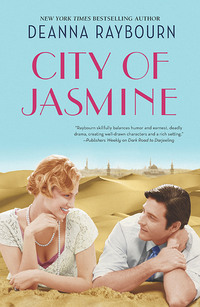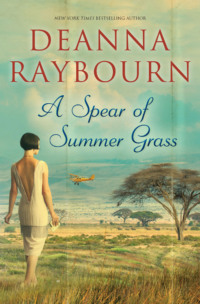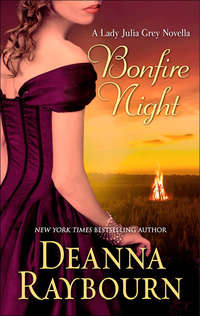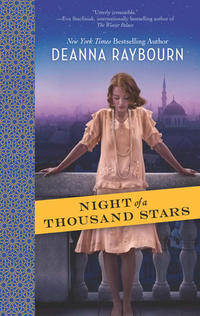
Полная версия
Silent on the Moor
He muttered under his breath as he pulled on his shirt, and I looked away to afford him a chance to settle his temper. When I looked back, he was as tidily dressed as any valet could have managed, his cuffs and collar perfectly smooth, a black silk neckcloth tied neatly at his throat.
“You astonish me, Brisbane. I should not have thought you bothered by the conventions of gentlemanly behaviour.”
He turned to face me, his expression betraying nothing but deep fatigue. “Every man should have something impossible to which he aspires.”
“You look tired, Brisbane. What takes you abroad on windy nights and leaves you covered in blood that is not your own?”
He canted his head, his eyes searching my face.
“Sheep. I was assisting a ewe at a difficult lambing. Quite a comedown, isn’t it? I am a sheep farmer now.”
He crossed his arms over his chest, immobile as any sculpture of antiquity.
I shrugged. “Any man of property who owns livestock could say the same. It is a very great change from your investigations in London, but I do not see why you think it objectionable.”
He gave a short, mirthless laugh, sharp and unpleasant. “You do not see. No, you do not. You will see a great deal more when the sun comes up. Folk in the village say this place is accursed, and I am beginning to wonder if they are right.”
“Nonsense,” I said briskly. “Of course, it is a little remote—”
He laughed again. “Remote? Julia, I do not want you here, and I cannot even compel you to leave because I have no means of sending you back to the village. No carriage can manage these heights, and there isn’t even a farm cart left here. The entire property is in shambles. Only the façade of the east wing remains; the rest of it has crumbled to dust. The gardens are overgrown to wildness. Everything of value has been stripped from the house and sold. There is nothing left here except ruin.”
“And you,” I said, emboldened by his excuses. Brisbane was more determined and more capable than any man I had ever known. Had he really wanted me to leave, he would have carried me to Lesser Howlett on his back and put me on the first train back to London. His pretexts told me everything I ought to know: Brisbane needed me.
His expression was bitter. “I? I am the most ruined thing of all.” He turned to face the fire, and for a long moment I watched the play of light over the sharp planes of his face. There was something new in his expression, something careworn and bedevilled that I did not like.
“How did you come to be here?” I asked at length. “I thought you were to receive the viscountcy of Wargrave from the Prime Minister.”
I trembled to hear the answer. I had interfered with Brisbane’s investigation at Bellmont—interfered so badly it had taken tremendous work on his part to salvage the situation. He had been engaged in business for the government, and the title had been offered as incentive for his involvement. When the promised viscountcy had not materialised, I had blamed myself.
He rubbed at the dark shadow at his jaw. From the look of it, he had not shaved in some days. “Prime Minister was perfectly willing to give me the viscountcy. Then I discovered this property was available. When the previous owner, Sir Redwall Allenby. died, his mother and sisters were forced to sell. Lord Salisbury pointed out that the income from this estate was not sufficient to support the style of a viscount, but when I offered to take the estate in lieu of the viscountcy, he made the arrangements to purchase the property on my behalf.”
“But why would you want this place at the expense of the Wargrave title?”
He gave me a long, level stare. “Because it suited me.”
That he was concealing something, I had no doubt. But Brisbane could be solitary as an oyster when it pleased him.
“And the Allenby ladies? I presume you have extended your hospitality to them because they have nowhere else to go?”
“Something like that,” he said, his eyes flickering away from mine.
Silence stretched between us and I glanced around, noticing for the first time the delicate frieze painted upon the walls. Stylised palms and lilies reached toward the ceiling, and here and there a bird took flight, its wings gilded with a touch of gold paint.
“It is an interesting room,” I offered. “The decoration is most unusual.”
“Sir Redwall was an Egyptological scholar. His rooms were decorated to suit his tastes.”
“Very pretty,” I remarked. I drew in a deep breath and moved closer to him. The firelight flickered over his face, casting shadows and lifting them again, making his expression impossible to read. I could see the lines etched at the corners of his mouth, lines I knew too well. I put out a fingertip to trace one.
“You have been in pain. The migraines?” He did not brush my finger away. He closed his eyes a moment, then shook his head.
“I have kept them at bay, but not for much longer I think. I can feel one circling on wings. There is a blackness at the edge of my vision.”
“All the time?”
“Most.” This time he did brush my finger away, but gently.
“What do you take? Do you still smoke the hashish?”
He shook his head. “Too much trouble to procure it here. Nothing but a glass of whisky before bed.”
I clucked at him. “That will never serve. You require something far stronger than that.”
“Don’t fuss, Julia,” he said, but his tone was soft.
I put out my hand again, cupping his cheek. He exhaled sharply, but did not move.
“Brisbane,” I murmured. “If you really want me to leave you, tell me now and I will go and you will never see me again. Just one word, that’s all, and I will remove myself. Forever.”
I stepped closer still. He closed his eyes again and covered my hand with his own. “You smell of violets. You always smell of violets,” he said. “You’ve no idea how many times I have walked these moors and smelled them and thought you were near. On and on I walked, following the scent of you, and you were never there. When I saw you in the hall tonight, I thought I had finally gone mad.”
He opened his eyes, and I saw a world of heartbreak there I had never expected. My own eyes filled with tears, and his image shimmered before me.
“You should leave,” he said finally, his voice thick. “It would be so much the better for you if you did.” His hand tightened over mine.
“But do you want me to go? Will you send me away?”
“No.”
I sagged against him in relief, and his arm came around to catch me close to him. I could feel the beat of his heart under my ear and it was the pulse of all the world to me.
Suddenly, he drew back and slid a finger under the chain at my neck. He tugged gently, and a pendant slid out from under my gown, a coin struck with the head of Medusa and incised with a code Brisbane had chosen at the end of our first investigation. Those few strokes of the engraver’s steel told me everything about Brisbane’s regard for me that the man himself could not. He turned the pendant over in his hand, then slid it back under the neckline of my gown, his finger warm against my flesh.
“You will regret it,” he said finally. “You will be sorry you stayed, and you will come to blame me.”
I stepped back and shook my head. “You said the last time we met I was more your equal than any woman you had ever known. Whatever is amiss here, I am equal to it as well. Good night, Brisbane.”
He did not bid me good-night, but as he turned to the fire, I heard him murmur, “Forgive me.”
And I wondered to which of us he was speaking.
THE FOURTH CHAPTER
She speaks, yet she says nothing.
—William Shakespeare
Romeo and Juliet
“I am afraid there is no other suitable chamber,” Miss Allenby apologised when she showed us up. “I have given you my sister Hilda’s room. She can share with me, and there is a little closet where Mr. Valerius can be accommodated.”
She meant closet in the medieval sense of the word, a small, panelled room with a narrow bed fitted into the wall and a tiny tiled stove for warmth. Valerius gave me an evil look and slammed the door behind him. He had already shown little grace in carrying up the bags, and I decided to leave him be. Perhaps a good night’s sleep would smooth his ruffled temper.
Portia and I demurred politely at Miss Allenby giving up her sister’s room to us, but she shook her head. “Oh, but you must have Hilda’s room. It has a pretty view over the moor, and the bed is bigger than mine. We have so little, but we must make you as comfortable as possible.” There was a gentle dignity about her, even as she admitted that the family had fallen on hard times. She showed us to the room, and I was relieved to see it was passable—more heavy, dark oak panelling with furniture to match, what little of it there was. The room appeared to have been stripped of its furnishings save the bed, an enormous monstrosity far too large to fit through either the door or casement. Some long-ago estate carpenter had doubtless assembled it in situ, never dreaming anyone would wish to remove it. There was a small chest beneath the window, and a handful of books stood propped upon the sill, leaning haphazardly against one another. I brushed a fingertip over the first, a heavy volume of green kid.
It was a compendium of Egyptian hieroglyphics, and rather an advanced one from the look of it. Miss Allenby smiled. “My sister is a devotee of Egyptian history,” she explained. “It is not a very ladylike pastime, but so long as she does not read her books in front of Mama, no one troubles her.”
“Indeed,” Portia remarked kindly, “Julia’s literary tastes are far more shocking, I assure you.”
I pulled a face at her, but Miss Allenby said nothing. She was already moving to the fireplace where a fire had been laid in the cold hearth. A warming pan was procured, and Morag heaped it with coals from the kitchen fire and thrust it between the sheets. Within minutes clouds of steam were billowing from the bed, and Miss Allenby had the grace to look abashed.
“It is difficult to air things properly. It can be rather damp on the moor,” she murmured. She left us then, and it was just as well. I would have hated a stranger to hear the imprecations uttered by Morag when she inspected the tiny adjoining room and realised she would have to share with Minna.
“Do be quiet, Morag,” I instructed. “I am far too tired to listen to you tonight. Finish the unpacking and I promise you may abuse me as long as you like in the morning.”
She yanked a gown from my trunk and spun slowly on her heel, surveying the near-empty room. “And where do you suggest I unpack to, my lady?”
I sighed. “Very well, I take your point. Not so much as a peg to hang a hat upon. Just fling me my nightdress and go to bed. We will sort it out in the morning.”
She snorted and did as she was bid, banging the connecting door to register her displeasure. Minna had already retired, having done twice the work in half the time, and Portia and I were left alone. We made our preparations hastily and scrambled into bed.
“It reminds me of the Great Bed of Ware,” Portia observed in ominous tones.
“Not quite so large, but certainly as forbidding,” I agreed. “At least the bed curtains are still in evidence. We should freeze otherwise.”
She looked around the room, shaking her head slowly. “Steaming beds, no paraffin lamps, and I do not like to look under the bed to make certain, but I believe that is a chamber pot.”
“Do not speak of it, I beg you,” I said faintly.
We stared at each other a long moment. “It is like something out of the Middle Ages. I had no idea people actually lived like this anymore.”
“Hush,” I warned. “I should not like Miss Allenby to hear you. She has been most hospitable. Clearly, their means are reduced. I am certain it is not their fault.”
She pressed her lips together. “Just because they are in res angusta doesn’t mean the rest of us have to endure it.”
There was no possible reply to that, so I did not attempt one. Portia blew out the candle and I drew the bed curtains, shutting out the pale, tattered remnants of moonlight. We huddled together for warmth, careful to keep our toes well clear of the steaming bed warmer.
“Are you going to tell me what he said?” my sister whispered into the darkness.
“No. But we are staying.”
“For how long?”
“I cannot say. As long as he needs me, I suppose. Or until I grow tired of bashing my head against the wall.”
She reached out and took my hand, saying nothing. We had not slept in the same bed since we were children, and I had forgot what a comfort it could be to have a hand to hold in the dark. Just as I was dropping off to sleep I heard a door close nearby, and female voices—one raised in impatience, the other low and soothing. Ailith was telling her sister of the new arrivals, I surmised. At length they quieted, and I heard nothing more.
The next morning I rose early, feeling better than I had since I had left London. True, Brisbane was bedevilled, and the accommodations were far from comfortable, but the sun was shining, Brisbane had not sent me away, and I had slept surprisingly well. I woke feeling rested and a little stiff from the chill of the room. Portia slept on and I slipped through the curtains, careful not to rouse her. The fire had died, but sunlight was streaming through the window. I pushed it open, breathing in great gusts of fresh moorland air. The moor stretched as far as the eye could see, green and brown, and purpled with heather in a few brave patches. There were dark shadows where the bogs lurked, but the moor had lost the sinister feeling of the previous night. Tufts of grasses spotted with tiny flowers rippled like waves, beckoning me out of doors, and I longed to explore. But first there was breakfast, and I was happily anticipating a hearty meal—my first proper sustenance since we had left London.
The hygienic arrangements were primitive at best. I daubed a bit of cold water about my person and dressed in a warm costume of soft tweeds edged in crimson braid. The skirt was full enough to make walking easy, and there was a divine little pair of low-heeled kid boots—just the thing for scrambling over the moor, I thought. I felt very smart as I descended to breakfast, following the delectable smells to the kitchen. Mrs. Butters was bustling from stove to table, bearing bowls of porridge and hot stewed fruits, racks of toast, and plates of hot, crispy sausages. Behind her scuttled a fey little creature, barely as tall as Mrs. Butters, with an untidy nest of black hair and wide, childlike black eyes. She took one look at me and scurried to the corner where she sat on a tiny stool, peeping over the corner of her apron.
Mrs. Butters leaned close, pitching her voice low. “Pay her no mind, my lady. Tha’s Jetty, tha is. She’s a halfwit, but a harder worker or a quicker hand you’ll never find. Her father is a farmer over Lesser Howlett way. She comes to do the rough. She’ll not speak to you, not at first. I pray you’ll not take offence, for she means none. She’s tha afraid of strangers, she is. But she is blessed in her own way, for the Lord does tell us that the meek shall inherit the earth,” she finished firmly.
“Certainly, Mrs. Butters.” I glanced at the quivering girl, still staring over the edge of her apron. I gave her a small smile, but she merely threw the apron over her head entirely. I surrendered my efforts to encourage Jetty and turned my attention to breakfast.
“How delicious it all smells, Mrs. Butters,” I offered.
She smiled at me, wiping her hands on her apron. Dressed in a striped skirt and an old-fashioned cap, she looked like something out of a picture book. Her cheeks were flushed pink with the heat of the stove, and her little curls were tight from the steam.
“I would offer thee coffee or tea, but we’ve only tea, so tha must do.”
“Tea is perfect, Mrs. Butters. Thank you.”
She motioned me to take a chair and I obeyed, charmed by the contrast between this humble kitchen breakfast and the elaborate morning meals I customarily took in London. The kitchen itself was tidy and well-organised, with a neat larder tucked to the side. Through the open door I could see row upon row of bottles, jewel-bright with fruits and vegetables put away against the winter. Although it was nearly spring, there was still a good supply of the previous year’s harvest which spoke of good housewifery, in spite of the condition of the rest of the estate. It was a place to be proud of, and I wondered idly what the pantry in my London house had looked like before the place was burned down. It had never occurred to me to inspect it, and I made a mental note to be more diligent with my next home.
Mrs. Butters brought a tray with pots of jam and little plates of butter, and a few other delights. “Thee’ll be thinking this is very different from London.”
I reached for a piece of toast. “I begin to think you must have a touch of the witch about you, Mrs. Butters. I was indeed pondering that very thing.”
She gave a little start. “Say no such thing, my lady! Witches indeed, such a thing is not to be borne. Has tha not read the Bible?”
I hastened to make amends. “It was simply a jest, Mrs. Butters,” I soothed. “This jam is quite delicious. Did you make it yourself?”
Her ruffled feathers settled themselves quickly. “No, bless you. Her ladyship always saw to her own stillroom. Comfits and preserves, a great one she was for those. Bottling fruits and mushrooms and brewing wines. Miss Ailith helps her with it, now she has grown frail. Ah, here is my lady.”
She nodded toward the door where Ailith Allenby was following an elderly lady into the room. But Lady Allenby was unlike any elderly lady I had seen before. She was every inch as tall as her daughter, and even in old age her face bore traces of great beauty. She carried herself with the bearing of a queen, and I rose to my feet to greet her.
“Lady Allenby, I am Lady Julia Grey.”
She smiled gravely as she approached the table. A single glance at her hands revealed why she had not offered one in greeting. They were gnarled like old vines with odd lumps and swellings, the marks of lingering rheumatism. There were lines etched by pain at her eyes, but those eyes were warm with welcome. “My dear, I am so pleased to make your acquaintance. Please sit. Do not allow your breakfast to get cold.”
Miss Allenby and I exchanged nods and innocuous remarks about the weather. She looked a little embarrassed as she accounted for her sister’s absence.
“Hilda is tending the chickens, and Godwin is out near Thorn Crag this morning. One of the rams has gone missing,” she told me. She did not speak of Brisbane and I did not ask. I should see him soon enough, and I was buoyed by the thought that now I had ensconced myself at Grimsgrave Hall, I should have all the time in the world to settle matters between us. As far as Hilda was concerned, a girl who was more interested in her chickens than in visitors from London was not likely to offer much in the way of conversation, I mused. There would be plenty of opportunities yet to make her acquaintance.
Lady Allenby settled herself into a chair as Ailith plumped a cushion behind her. “You must forgive us for clinging to the old customs here, my lady. We are not so fashionable as you southerners. Here we eat in the kitchen, and do our needlework and reading by the fire. We must have our economies,” she added with a solemn sort of dignity. A lesser woman would have apologised for her poverty, but not Lady Allenby.
I hastened to reassure her. “I am not fashionable in the least, I promise you, Lady Allenby. I do not dine with the Marlborough House set, and it is years since I went to Court.”
She shook her head at the mention of the Prince of Wales’ companions. “Disgraceful. A pack of German upstart princelings. They are not of the old blood. Not like your family,” she said approvingly. “I had a peek in Debrett’s before you awoke. A fine old English family, yours is.”
I tried not to think of all the French and Irish scapegraces who had married into the Marches. “Yes, well, I suppose we have been here rather longer than some folk.”
Lady Allenby smiled benevolently. “And not as long as others. There have been Allenbys here since the time of Edward the Confessor.”
“Indeed? I shall be very interested to hear the history of this place.”
She gave me a gracious nod. “Whatever you should like to know, you have only to ask. Of course, it is not my place to show you the house. You are Mr. Brisbane’s guest, and the honour will fall to him.”
It seemed an awkward patch in the conversation, and I hastened to smooth it over. “I am certain Mr. Brisbane cannot possibly do justice to its history compared to yourself, Lady Allenby.”
She inclined her head again, putting me greatly in mind of a queen granting a boon to a serf.
“It is very nice for Mr. Brisbane to have visitors. One worries about the bachelors of the species, they are too often solitary creatures,” Lady Allenby said with an effort at delicacy, I thought. Clearly she wondered about our presence, and I felt compelled to at least try to be forthright with her.
“I am afraid the situation is not quite as we thought,” I began cautiously. I was not entirely certain how much to reveal. I was deeply conscious of Ailith Allenby hovering nearby as she prepared her mother’s plate. I had no desire to make my private affairs fodder for Allenby family gossip, but we were living cheek-by-jowl with them as it were, and it seemed silly to ignore the situation altogether.
“My sister and I were rather precipitous. We thought that, as a bachelor, Brisbane was in need of some feminine assistance in ordering his household. We did not realise you and the Misses Allenby were in residence.”
Lady Allenby spread her hands. The joints were thick and swollen, but still elegant, and on her left hand she wore a thick band of gold, braided with baroque pearls and old-fashioned, lumpy rubies.
“My dear lady, you must not think Ailith and I will be in your way, and Hilda is positively useless at domestic matters. We are simply guests of Mr. Brisbane’s while he kindly oversees the refurbishment of one of the outbuildings for our use. He has been exceedingly generous to us. There was no provision under the terms of the sale of Grimsgrave Hall for my daughters or myself. What he does for us is solely out of his own sense of charity.”
As there seemed no possible response to this, I did not attempt one.
While I finished my toast, I darted glances at Ailith, attempting to make out her character. I realised that in spite of her remarkable beauty, Ailith Allenby’s life had likely not been an easy one. I felt ashamed of my first impulse to dislike her, and determined to make an effort to befriend her.
I smiled at her briefly, then turned to her mother. “I do hope you are quite recovered, Lady Allenby. Miss Allenby told us last night you were suffering from a rheumatism.”
“The last year has been a trial,” she said softly. “My rheumatism is grown much worse now. My hands, my hips. Some days I can scarcely rise from my bed. Still,” she said forcefully, “we are given no trials over which we cannot triumph with the aid of the Divine.” She touched the chain at her belt, and I realised it was a rosary. I suppressed a sigh. Between Lady Allenby’s devoutness and Mrs. Butters’ fondness for Holy Scripture, I feared I would find their company a trifle tedious. My father had once famously stated in Parliament that religion was as intimate as lovemaking and ought to be as private. The thought was not original to him, but it reflected his views quite accurately. While we had attended church, it was seldom with any true regularity, and God was seldom discussed in our family except in a very distant sort of way, rather like our cousins in Canada.
Lady Allenby lifted a crooked hand to her daughter. “Ailith, dearest, I find I am in need of St. Hildegarde’s ointment.” Lady Allenby turned to me. “We are fortunate at Grimsgrave to have a Gypsy woman who lives in a cottage out on the moor. She is a skilful healer and a most interesting woman. Perhaps you would care to make her acquaintance?”









